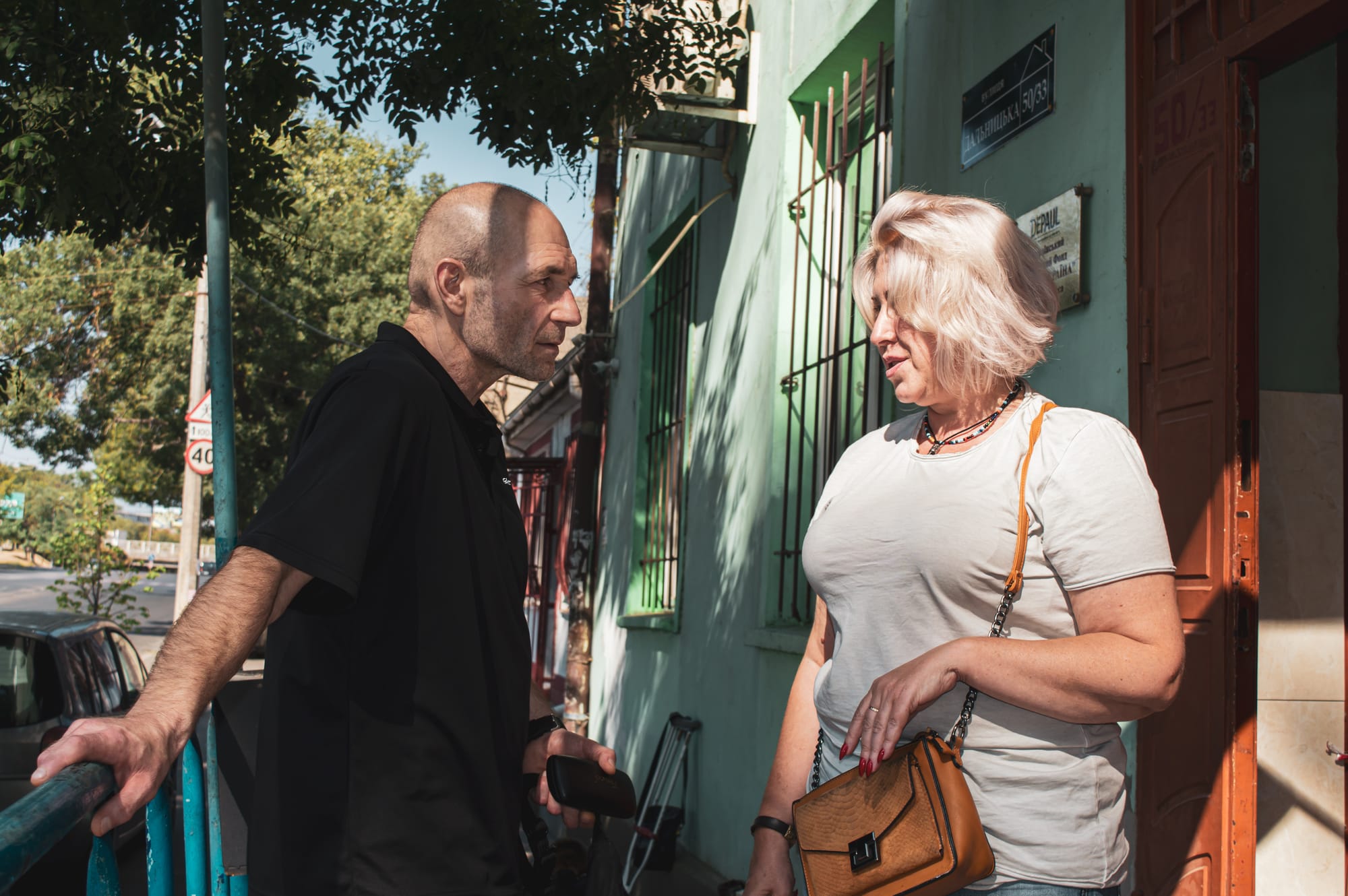Could a Housing First model solve Ukraine's homelessness crisis?

As Russia’s full scale invasion of Ukraine enters its third year, a crisis of homelessness is emerging across the country. New research from UK-based charity Depaul International shows a sharp rise in homelessness in Ukraine, with 22 per cent of those sleeping rough becoming homeless as a direct consequence of being displaced during the conflict.
‘My house in Vovchansk [Kharkiv region] burnt down [...] I have no money, no job. I do not know where I will live next,’ says Oleksandr*, a rough sleeper cited in the research.
Since Russia invaded Ukraine in February 2022, 3.5 million people in Ukraine have been forced to leave their homes; two million have had their homes destroyed or damaged. Many shelters have also been destroyed by Russian airstrikes, and strict rules on the remaining shelters often lead to single men, formerly incarcerated individuals or those with addiction problems being turned away. Women sleeping rough are also more likely to be survivors of domestic violence — 79 per cent of women accessing services have also experienced gender-based violence, according to Depaul.
‘There are very few organizations working with homeless people [in Ukraine] … our experience shows there are a lot of needs that are not addressed,’ says Anna Skoryk the interim CEO of Depaul Ukraine.
Skoryk and her colleagues want to see the Ukrainian government pilot the ‘Housing First’ model which guarantees permanent housing and intensive support for people with the most complex needs. It has been proven to keep people housed in Canada, New York, Finland and France, as well as in Ukraine’s neighbours like Slovakia and Hungary.
Currently there is no official Housing First program in Ukraine. The war has destroyed the country’s economy, infrastructure and public services while the needs for mental health care, accommodation, food, medication and addiction treatment continue to soar.
Volunteers have been shouldering much of Ukraine’s humanitarian response, with many existing community groups reorienting their activities to provide humanitarian support. Depaul wants these groups to be more effective in supporting people to progress out of homelessness and are calling on charities and NGOs to offer volunteering in more comprehensive services with tailored psychosocial, legal and healthcare assistance.
‘We'd like to engage other NGOs. We did this assessment not just to say we have a problem, but to tell people, let's [solve] it together,’ says Skoryk.
*Not his real name
— Maxine Betteridge-Moes (@maxine_moes)
Action and info:
📰 Read more in Depaul's latest research report Homelessness in Ukraine
👉 Follow Depaul International
📆 Sign up to Homeless Link Housing First Fidelity Framework Course, 17 October
✊ Get involved: Ukraine — what can internationalists do?
Like what you've read? Support us with a tip.
Have a contribution for our Currents Calendar? Reply directly to this email.
Are you a freelancer? Pitch us a story.

